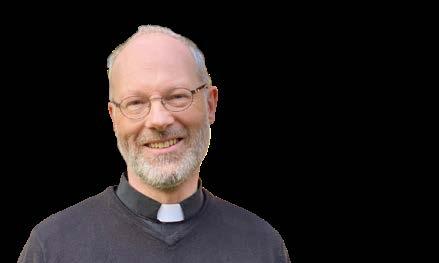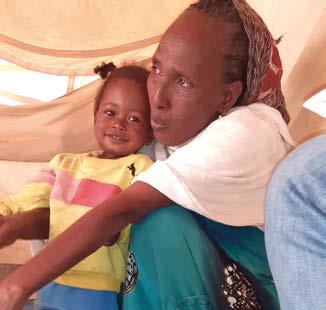
2 minute read
From Fr Provincial
There is a distinctly carceral flavour to this edition of Jesuits & Friends, which you may think sits uncomfortably with the free, relaxed mood of summertime. If you are lucky enough to find yourself reading this magazine on a beautiful, sunny day as you sit by the sea, a prison cell is the last thing you will want to think about. And yet, the liberation of captives is one of the great symbols of salvation which the Bible uses to express the power of God’s activity in the world. The promise of freedom is one of the most significant attractions of the gospel itself.
Is gospel freedom primarily about our inner lives? Freedom from attachments, addictions and compulsions; freedom, if you like, from sin? St Ignatius was certainly clear that the Spiritual Exercises could help free the believer inwardly, enabling them to join Christ’s mission in whatever state of life God willed. Or is it more social and political freedoms which are at stake: freedom of religion or speech, freedom from oppression and persecution? The Church’s answer is ‘both’. Catholic social teaching states: ‘Far from being achieved in total self-sufficiency and the absence of relationships, freedom only truly exists where reciprocal bonds, governed by truth and justice, link people to one another’ (Compendium, 200)
Advertisement
That is why, since the Second Vatican Council, the Catholic Church has become one of the strongest champions of social and political freedoms. Jesuits have been at the forefront of that achievement, whether it was Fr John Courtney Murray SJ, the American theologian whose writings helped the Church to embrace the principle of freedom of religion, or the Jesuits of El Salvador and other parts of Latin America, who committed themselves to solidarity with the oppressed poor, the ‘crucified people’, as Fr Jon Sobrino SJ described them.
These days, the question of personal freedom arises in quite a new way. The unspoken rule of modern life is that you are free to do anything as long as it doesn’t impinge on the freedom of others. It’s a sensible rule which works well in many situations. It doesn’t help, though, in a world of almost infinite interconnection. Should I really be free to maintain a lifestyle that imperils the well-being of future generations by taking more than my fair share of the world’s resources? And if not, should I be free to protest about that very injustice in a way which interferes with the freedom of others as they go about their daily business? We are in the early stages of working out how to live together freely in a world in which we depend more than we realised on one another to be moderate and considerate in ways that can be costly.
Followers of Jesus Christ will not be fazed by this. They will be concerned, wanting to devote themselves to safeguarding that vital but mysterious good which is the true freedom of the children of God. That’s a wonderful thought to take to the beach.

Damian Howard SJ
22 It was Jesuit Missions’ last London Marathon, and those who ran for them and for JRS UK gave it their all.









